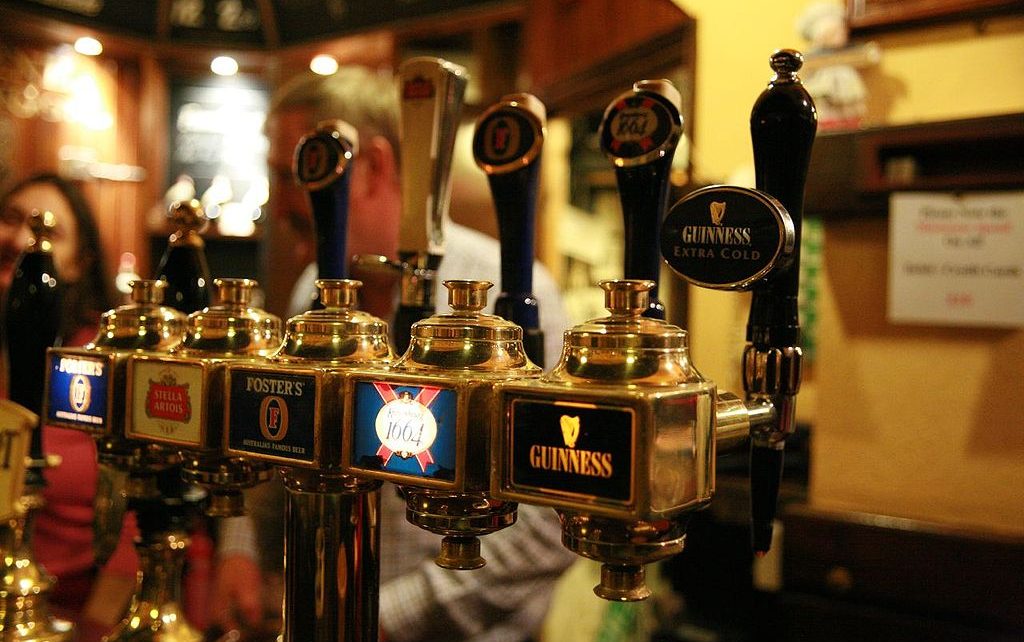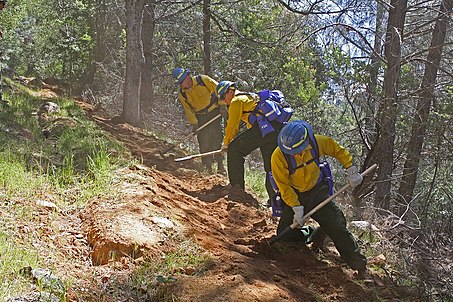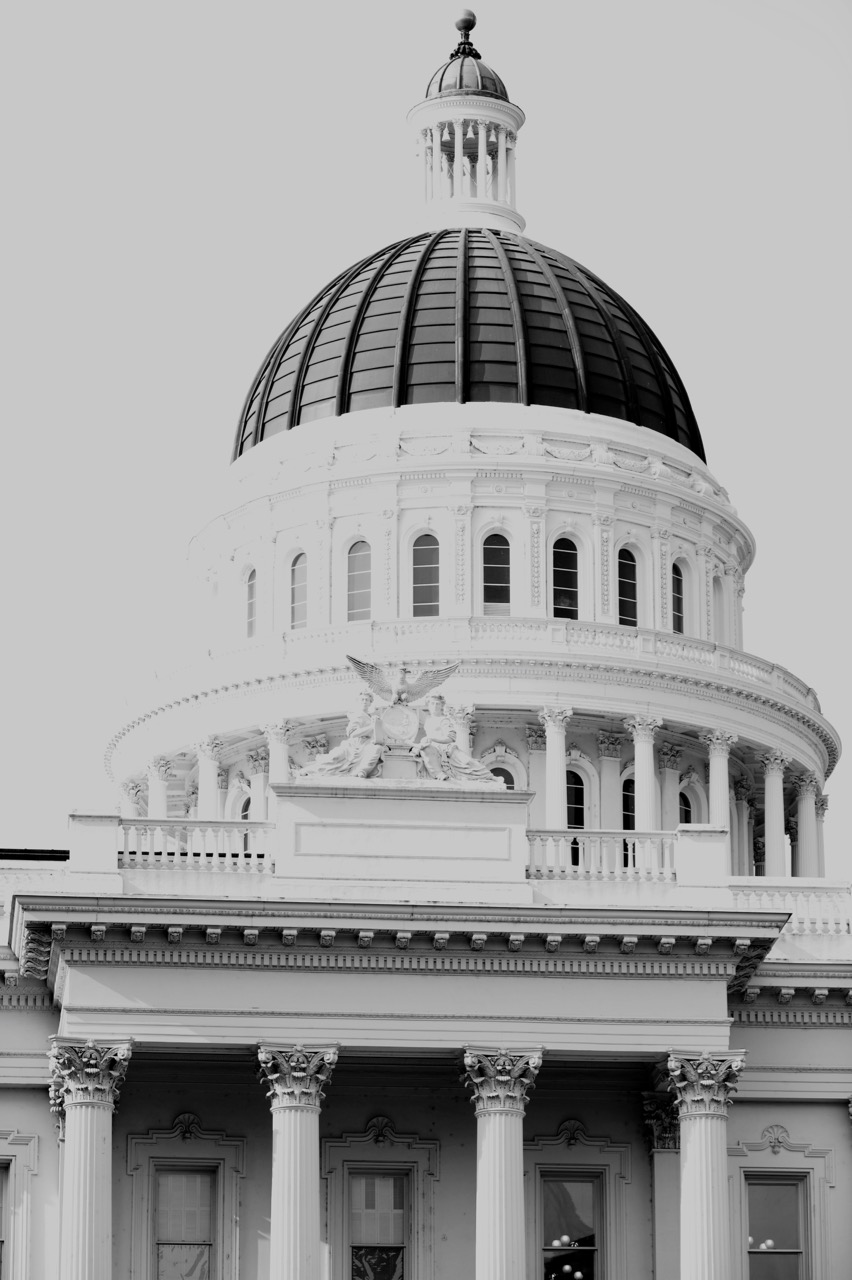
Beer tap. (Photo: Wikipedia)
California’s Two Alcoholic Beverages Entities: What’s the Difference?
ABC Agents are peace officers empowered to investigate and make arrests
By Chris Micheli, September 5, 2020 7:37 am
California has two alcoholic beverage-related entities: Alcoholic Beverage Control Appeals Board and Department of Alcoholic Beverage Control. What’s the difference?
In order to address this question, we first need to examine the California Constitution, Article XX, Section 22, which vests with the State of California, subject to relevant federal laws, the “exclusive right and power to license and regulate the manufacture, sale, purchase, possession, and transportation of alcoholic beverages within the State…[and] the exclusive right and power to regulate the transportation into and exportation from the State of alcoholic beverages. This Section was added to the state constitution in 1955.
Alcoholic Beverage Control Appeals Board
Pursuant to Article 20, Section 22, Subdivision (d), the Alcoholic Beverage Control Appeals Board consists of three members appointed by the Governor, subject to confirmation by a majority vote of all of the members elected to the Senate. Each member, at the time of his or her initial appointment, must be a resident of a different county from the one in which either of the other members resides. The members of the Board may be removed from office by the Governor, and the Legislature has the power, by a majority vote of all members elected to each house, to remove any member from office for dereliction of duty or corruption or incompetency.
Business and Professions Code Division 9, Chapter 1.5, Article 3, which was added in 1954, sets forth The Alcoholic Beverage Control Appeals Board in Sections 23075 to 23077. Section 23075 provides that there is in the state government, in the Business, Consumer Services, and Housing Agency, an Alcoholic Beverage Control Appeals Board, the members of which are appointed and serve as provided in Section 22 of Article XX of the Constitution, and receive an annual salary.
According to the Alcoholic Beverage Control Appeals Board, it provides quasi-judicial administrative review of final decisions of the Department of Alcoholic Beverage Control. The Board issues written decisions with orders affirming, reversing, and/or remanding Department decisions regarding: issuance of licenses, conditions placed upon a license, protests against a license being issued, and violations of law by a licensee.
Department of Alcoholic Beverage Control
Pursuant to Article 20, Section 22, Subdivision (d), the Director of Alcoholic Beverage Control is the head of the Department of Alcoholic Beverage Control and is appointed by the Governor, subject to confirmation by a majority vote of all of the members elected to the Senate, and serves at the pleasure of the Governor. The director may be removed from office by the Governor, and the Legislature also has the power, by a majority vote of all members elected to each house, to remove the director from office for dereliction of duty or corruption or incompetency.
Pursuant to Section 22, the Department Director may appoint three persons who are exempt from civil service to assist the Director. The Department has the exclusive power, except as provided in Section 22 and in accordance with laws enacted by the Legislature, to license the manufacture, importation and sale of alcoholic beverages California, and to collect license fees or occupation taxes.
In addition, the Department has the power, in its discretion, to deny, suspend or revoke any specific alcoholic beverages license if it determines for good cause that the granting or continuance of such license would be contrary to public welfare or morals, or that a person seeking or holding a license has violated any law prohibiting conduct involving moral turpitude. It is unlawful for any person other than a licensee of the Department to manufacture, import or sell alcoholic beverages in the State.
According to the Department, its vision is to “protect California communities through excellence in alcohol regulation and education.” The Department’s workload is divided into three elements: administration, licensing, and compliance. Agents and/or Licensing Representatives investigate applications for licenses to sell alcoholic beverages and report on the moral character and fitness of applicants and the suitability of premises where sales are to be conducted.
ABC Agents are peace officers under Section 830.2 of the California Penal Code and are empowered to investigate and make arrests for violations of the Business and Professions Code that occur on or about licensed premises. Agents are further empowered to enforce any penal provisions of the law any place in the State. Licensees who violate State laws or local ordinances are subject to disciplinary action and may have their licenses suspended or revoked.
- Frequently Asked Questions about State Agency Ethics Training - April 26, 2024
- Frequently Asked Questions about When Elected Officials Take Office - April 25, 2024
- Frequently Asked Questions About Ethics Training for Local Agencies - April 24, 2024





There is no reason these guys should be peace officers. When was the last time they arrested someone? They want peace officer status so they can benefit from the increase in pay and public safety pensions. None of these goons probably never remove their weapons unless they’re at the range.
ABC agents are POST certified. They are sworn peace officers. As fully sworn peace officers, ABC agents must be ready at all times to respond to emergencies. They should be deployed to assist with crowd control at all of the BLM/Antifa arson meet ups.
CALIFORNIA ABC AGENTS MAKE HUNDREDS OF PHYSICAL ARRESTS AND ISSUE THOUSANDS OF CITATIONS PER YEAR FOR EVERYTHING FROM OPEN CONTAINERS AND DRUG POSSESSION/USE IN AND AROUND LICENSED PREMISES AND PARKS, TO DUI’S, MINORS IN POSSESSION, AND ANY OTHER CRIME THEY COME ACROSS WHILE WORKING IN THE FIELD. BUT EVERYONE IS ENTITLED TO THEIR OPINION, EVEN IF IT IS ILLINFORMED.